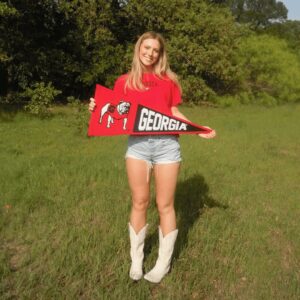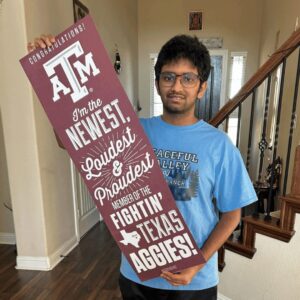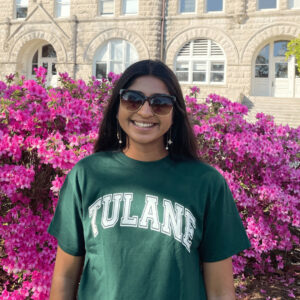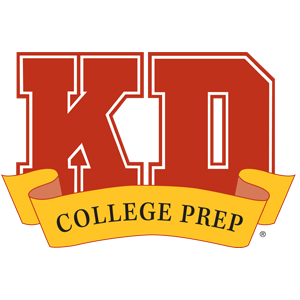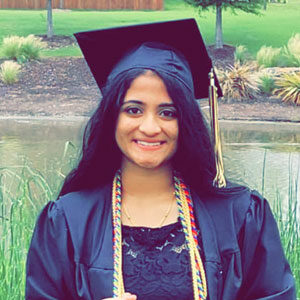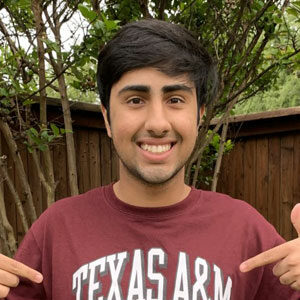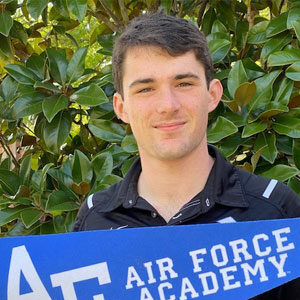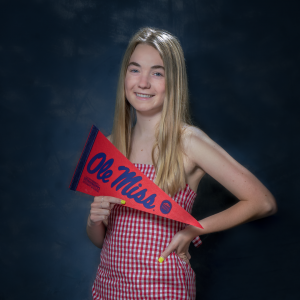Sports can have a significant presence in an avid fan’s life. If you love playing and watching sports, you might be thinking about enrolling in one of the sports majors in college with an eye toward a career in this growing industry.
Whether you fantasize about standing on the rubber in an MLB stadium in front of 40,000 fans or hope to work with athletes behind the scenes, there are plenty of sports majors in college to choose from. As you look through these 26 sports-related majors, consider how your strengths and interests might align with potential career outcomes.
Note that some of the potential career outcomes listed below may require additional education or training beyond an undergraduate degree program.
Explore Sports Majors and Degree Programs
1. Exercise Science
Physical fitness is a major component of health, and yet, going about it the wrong way can cause more harm than good. For example, if you don’t use the proper form when doing a squat, you might develop knee problems. The exercise science field focuses on how the human body adapts to exercise.
Potential career outcomes with an exercise science degree could include:
- Personal trainer
- Physical therapist
- Occupational therapist
- Coach
- Team trainer
2. Exercise Physiology
A degree in exercise physiology is closely related to exercise science. In fact, exercise physiology is a component of exercise science. The difference is that, whereas exercise science takes a broad approach in studying how the body reacts to exercise, exercise physiology’s narrower focus explores how humans can use physical activity to improve fitness and health.
The potential career outcomes are similar to an exercise science degree. They may include:
- Personal trainer
- Exercise physiologist
- Physical education teacher
- Exercise-specific instructor (i.e., yoga teacher or aerobics instructor)
3. Sports Coaching
Some sports majors in college, like exercise science, encompass broad fields and diverse role opportunities. Others, such as sports coaching, focus more narrowly on a specific professional role outcome. You may consider majoring in sports coaching if you know for sure that your intended career is to be a sports coach.
With a sports coaching degree, you might pursue obvious career outcomes, such as:
- Youth or interscholastic coach
- High school or college coach
- Professional sports team coach
There are other possibilities, as well. If your career goals shift, you might still pursue other types of roles with this degree, such as:
- Sports facility manager
- Physical education teacher
- Athletic scout
4. Sports Management
If you’re interested in a behind-the-scenes role, you might consider choosing a sports management/administration degree. This degree program is typically focused on developing core business competencies—from accounting to human resources to organizational leadership.
Some colleges may offer a more specialized sports management degree such as golf management. This degree focuses on golf course operations, horticultural principles, and yes, perhaps even golf instruction.
Some potential career outcomes may include:
- Athletic director
- Sports team manager or front office personnel
- Sports agent
- Sports facilities manager
5. Professional/Recreational Facility and Event Management
A degree in sports facility and event management is similar to a sports management/administration degree. However, this program focuses more narrowly on the daily operations of a sports facility/venue. You may be able to find an even more specific degree that focuses either on recreational facility management or professional sports facility management.
Some career outcomes may include:
- K-12 or collegiate sports facility manager/administrator
- Community-based facility manager
- Professional sports facility manager
- Sports event manager
6. Sports Psychology
From a fan’s perspective, the job of a professional athlete might seem like an easy one, as athletes can get paid to play a game. Yet, professional athletics is real hard work. Athletes not only need to stay at the top of their game training, working out, and studying their opponents, but they must also handle public pressure from fans and the media. Athletes can struggle with mental health issues ranging from substance abuse to clinical depression to anxiety and more.
The job of a sports psychologist is to provide a safe, confidential, judgment-free space where athletes can nurture their mental health and develop strong coping skills to handle all that pressure. To become a sports psychologist, you’ll also need to earn a doctorate in psychology and meet other state licensure requirements.
7. Nutrition and Dietetics
Not all sports majors in college have the words “sports” or “athletics” in the official program name. Other sports-related majors focus on medical and health sciences. For example, if you decide to major in nutrition, you might go on to pursue licensure as a registered dietitian (RD). An RD can work with amateur, collegiate, or professional athletes by educating them about nutrition and designing meal plans to help keep their bodies performing at a high level.
8. Pre-Physical Therapy
Athletes rely on physical therapists to rehab from injuries and reduce their risk of recurrent injuries. A pre-physical therapy major can provide a good foundation to pursue graduate-level education in physical therapy—which you’ll need in order to obtain licensure.
9. Pre-Med
If you think you’d like to become a sports physician, such as a team doctor, then a pre-med track makes sense. Keep in mind that “pre-med” typically is a unique course plan designed to help students check off medical school requirements while pursuing a major—it’s not usually considered a college major. Most colleges usually refer to pre-med as a “track”.
For example, you may pursue a Bachelor of Science in Biology on a pre-med track. In this case, your major is biology, but you’ve completed the required pre-requisite coursework needed for medical school applications. If, after graduating with your BS, you may decide that you’d rather not go on to medical school after all, so you’ll still have other choices. A pre-med major might decide to enroll in a physical therapy doctorate program, for example.
It’s also important to note that some colleges may not have a pre-med track. That’s okay! You don’t have to be pre-med to get into medical school. But there are certain course requirements that you will have to meet. It’s best to do your research early on to make sure you’re doing everything you can to maximize your chances of acceptance. Start by checking the websites of the medical schools on your list.
10. Pre-Chiropractic
Athletes at all levels can benefit from chiropractic care, both for therapeutic and preventive purposes. If this career path appeals to you, consider looking for a pre-chiropractic degree, such as a degree in biology with a concentration in pre-chiropractic. Then, you’ll need to complete four years of chiropractic school (similar to medical school) and earn licensure as a Doctor of Chiropractic (DC).
11. Athletic Training
Despite the name, athletic trainers aren’t fitness trainers. They are medical professionals who provide first aid and rehabilitative care to injured athletes. An accredited athletic training program should allow you to sit for the National Athletic Trainers’ Association Board of Certification exam. Athletic trainers may work for high schools, colleges, recreational teams, or professional teams.
12. Sports Communications
If you have great written and/or verbal communication skills, you might consider majoring in sports communications. Sports communications isn’t quite the same as sports journalism, although the two fields have much in common. A sports communication major is more likely to pursue career outcomes such as:
- Public relations specialist for sports teams
- Sports team marketing specialist
- Information director for athletic departments or teams
13. Sports Marketing
Speaking of sports marketing, this can be a great sports-related major for students who are creative and good with language. A sports marketer may work for a professional sports team (for example, managing their social media accounts) or for a sports-related company (e.g., sporting goods or merchandise company).
14. Physical Education
If you’d like to work with students, consider majoring in physical education. Be sure that the degree program you choose will lead to initial teacher licensure in the state you’d like to work in. Expect to learn about anatomy, physiology, and coaching tactics.
15. Sports Journalism and Broadcasting
If you have strong written and/or verbal skills, and you would love to write or talk about teams, players, and sports trends in a completely objective, fact-based way, consider pursuing a sports journalism and/or broadcasting degree.
Job opportunities can include:
- Sporting event photographer/videographer
- Sports journalist or broadcaster
- Sports columnist
16. Photography and Video Production
Have a knack for technology, as well as an artistic eye? Consider majoring in photography or video production. Sports photographers and videographers work on the sidelines or behind the scenes, capturing moments of sports greatness for fans to enjoy. Many professional teams have an entire department dedicated to this field.
17. Turf Management
The fields that collegiate and pro athletes play on must always be immaculately cared for. If you’re not afraid to get your hands dirty (literally), then turf management might be the sports-related major you’ve been looking for. You’ll learn about horticulture, and you’ll also likely take some business-related classes, such as accounting.
18. Pre-Law
Pre-law might not sound like a relevant sports major in college, but it could be a path you pursue. If you graduate from law school and pass the bar exam, you might become a lawyer who specializes in sports contracts. If you decide not to go to law school, you could become a sports agent.
(Like pre-med, colleges often provide pre-law as a “track” rather than a “major”. In other words, you can major in anything and still follow a pre-law track.)
19. Sports Studies
Sports studies degrees involve a bit of everything. These interdisciplinary programs explore how sports relate to culture, history, and economics. They may include topic areas like sociology and psychology. Some potential career outcomes include:
- Sports data researcher
- Sports statistician
- Sports history professor
- Sports communication specialist
20. Data Analytics
Some universities offer general data analytics degrees, but some offer concentrations specifically in sports data analytics. Either program would be a good choice for students with a knack for numbers, patterns, projections, and trends who desires to work in a sports team’s analytics department.
21. Nonprofit Leadership/Management
If you have an altruistic personality and a love of sports, why not combine them? Majoring in nonprofit leadership/management may allow you to pursue a career working in one of the many nonprofit organizations involving sports, like the Special Olympics. There are also lots of smaller community-based entities, like the YMCA.
22. Parks and Recreation
Another sports-related major to consider is sports and recreation. Graduates may go on to develop and oversee recreation and sports-related programs for community-based organizations and city governments.
23. Kinesiology
Majoring in kinesiology is an alternative to an exercise science major. (Exercise science is a subfield of kinesiology.) Kinesiology explores how exercise affects human health, quality of life, and society as a whole. Potential career outcomes may include:
- Personal trainer
- Athletic trainer
- Physical therapist
- Coach
24. Recreational Therapy
A recreational therapist works with people with disabilities or injuries. They plan and implement recreation-based rehabilitation programs designed to enhance physical functioning and quality of life. In addition to a bachelor’s degree, you may need licensure or certification to become a recreational therapist.
25. Hospitality Management
The hospitality industry plays an essential role in the sports industry. Teams travel, and players need a place to stay in and good, nutritious food to eat. Fans also need accommodations, food, and transportation when traveling to see their favorite teams play. If you’re a well-organized person with an eye for detail, consider majoring in hospitality management.
26. Finance or Accounting
The sports market brings in more than a billion in yearly revenue, and someone must keep tabs on all the dollars collected by sporting events, promotions and sponsorships, or athletic brands. Many sports brands are also publicly traded companies. So, if you like numbers and want to pursue a job at a major sports brand then consider pursuing a finance or accounting degree. While in college, you may find internships with brands like the NCAA, a Division I athletics department, a professional sports team, an athletic clothing brand, or another similar organization.
What major do you need to be a professional athlete?
There is no universal academic requirement to pursue a career as a professional athlete. As important as it is to nurture your dreams for the future, it’s also essential to be realistic about your opportunities. Think about this: a high school baseball player has about 8.1-percent chance to compete as an NCAA athlete. Furthermore, only 5.1 percent of NCAA baseball players make it to a major or minor league program.
In other words, it takes extraordinary skill, patience, and a good dose of luck to play sports professionally. Because of this, it’s crucial to choose your major with an eye toward what you would like to do if a career as a professional athlete doesn’t pan out. Reference the above list for sports majors in college to choose from; even if you don’t play professionally, you can still pursue a sports-related career.
Some professional athletes have had rather surprising majors. Here’s a quick look:
- Von Miller (NFL): Poultry Science
- Michael Jordan (NBA): Cultural Geography
- Shaquille O’Neal (NBA): General Studies (O’Neal also obtained an MBA and a Doctorate in Education)
- Drew Brees (NFL): Industrial Management and Manufacturing
- Myron Rolle (NFL): Medical Anthropology (Rolle became a medical doctor after his NFL career.)
- Gerrit Cole (MLB): Political Science (Theater minor)
- Serena Williams: (Women’s Tennis Player) – Political Science and Women’s Studies
What is the highest paying job in sports?
Individual salaries can vary widely, even within the same profession. For example, an undrafted minor league baseball player might make only $19,800 annually, whereas a high draft pick could sign for millions. For non-playing careers, salaries often rise for those working in or around professional teams versus amateur or recreational sports.
Although there’s a great deal of variation, here’s a look at some of the highest-paying sports-related careers in order from lower to higher on the typical pay scale:
- Athletic director
- Physical therapist
- Sports statistician
- Sports psychologist
- Sports physician
What should I study if I love sports?
There are dozens of potential college majors that align with a career in sports. The most important factor to consider when choosing a college major is where your interests and skills lie. Major in what you’re passionate about, and then consider how to apply your major to a sports-related career.
How do I get started in the sports industry?
It can be a challenge to build a career in the sports industry. Earning a college degree is the first step, and depending on your career goals, you may also need to go to graduate school or a professional school (e.g., medical school).
For some career pathways, experience and professional networking are just as important as formal education. Always be on the lookout for opportunities to gain some hands-on experience and develop relationships in the industry. Pursue volunteer and internship opportunities in the field and stay in touch with those you meet.
Need help choosing a college major?
No matter what your academic and personal interests are, the experts at KD College Prep can help you find the perfect program for you. In addition to our highly effective test prep programs, we’re pleased to offer comprehensive college counseling services, including assistance selecting college majors and careers, writing admissions essays, and much more. Request your free consultation today.



